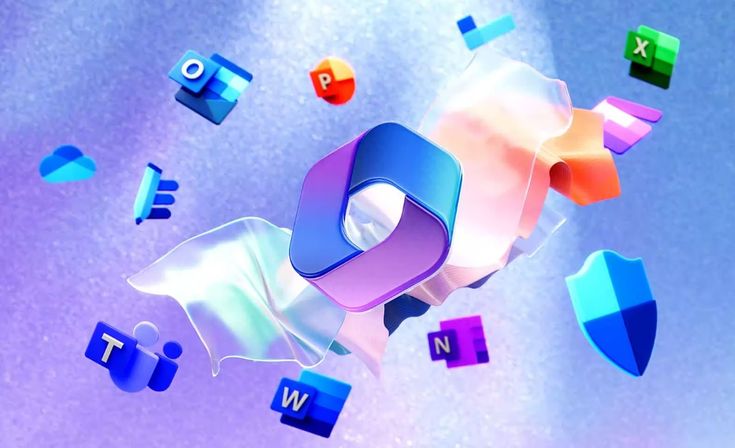
In 2024, mastering programming languages is not just an asset but a necessity for those looking to thrive in the tech industry. As technology advances, the importance of staying current with evolving languages becomes clear, particularly as they expand in functionality and application. Here’s a deeper look at some of the most influential languages shaping the landscape of software development today.
Python's widespread popularity is well-deserved due to its ease of use, especially for beginners. Its clean, readable syntax makes learning the fundamentals of programming accessible to all. Beyond simplicity, Python’s power lies in its flexibility—it supports an array of domains such as web development, scientific computing, data analysis, artificial intelligence, and machine learning. Furthermore, Python boasts one of the most extensive collections of libraries, including TensorFlow and Pandas, which contribute to its dominance in data science and AI fields. Additionally, the Python community is vast, providing rich support and resources for developers at any level. Thus, Python continues to be a first-class choice for developers in 2024.
JavaScript remains the foundation of web development, serving as the cornerstone for front-end and back-end web applications. Known for its asynchronous capabilities and event-driven programming model, it allows developers to handle complex tasks like server-side communication and user interaction seamlessly. The introduction of frameworks like React, Angular, and Node.js has extended its utility beyond simple scripting to full-stack development, proving that JavaScript is indispensable for modern web-based solutions. JavaScript’s ubiquity makes it a must-learn language for any aspiring web developer.
As a statically-typed superset of JavaScript, TypeScript addresses many of JavaScript’s inherent challenges. It introduces optional static typing, which significantly reduces the likelihood of runtime errors and improves code maintainability. The language has gained prominence in large-scale applications where early detection of errors and clearer code structure are critical. As the demand for robust, scalable web applications grows, TypeScript’s adoption continues to accelerate, cementing its role as a key language for serious web development projects.
Developed by Google, Go (or Golang) has become a preferred language for systems programming and cloud infrastructure due to its simplicity and efficiency. Its inherent support for concurrency, through goroutines, allows developers to write programs that perform multiple tasks simultaneously without the complexity seen in languages like Java or C++. With built-in tools for testing, benchmarking, and compiling, Go stands out for its practicality, making it the language of choice for cloud-native development, microservices, and large-scale distributed systems.
Rust’s rise is driven by its focus on safety, performance, and concurrency. Designed to prevent common bugs such as memory leaks and data races without sacrificing speed, Rust is ideal for building secure and efficient system software. Its unique ownership model ensures memory safety without the need for a garbage collector, making it one of the most reliable choices for low-level programming tasks. Rust is particularly suited for applications where performance and security are paramount, such as in embedded systems, operating systems, and game engines.
Java has long been a dominant force in enterprise software development, and it continues to hold its ground in 2024. Known for its platform independence, Java’s "write once, run anywhere" promise ensures that code runs consistently across various platforms. It remains the backbone for Android development, large-scale web applications, and enterprise systems. The vast ecosystem of libraries and frameworks, along with a long-standing commitment to backward compatibility, ensures that Java remains a relevant and essential skill for developers, particularly those working on complex, high-volume systems.
C++ is one of the oldest, yet most resilient programming languages, especially in areas demanding high-performance computing. Its capability for low-level manipulation and direct memory access makes it a preferred language for game engines, graphics-intensive applications, and systems programming. While it can be complex and requires careful management of resources, the control and efficiency C++ provides are unparalleled. Developers who master C++ find themselves equipped to work on cutting-edge applications that require fine-tuned performance.
Elixir, built on the Erlang virtual machine (BEAM), is celebrated for its ability to handle highly concurrent and distributed applications with minimal downtime. Its functional programming paradigm, combined with a syntax that is easy to read, makes it an appealing option for developers seeking to build scalable, fault-tolerant applications, particularly in telecommunications, finance, and real-time systems. Its rising popularity is also due to its use in building maintainable, distributed systems with capabilities for handling a large number of simultaneous connections, which is crucial for modern web services.
In 2024, the programming landscape is rich with opportunities, with each language offering unique strengths suited to different tasks. Python's ease and versatility, JavaScript's web dominance, and TypeScript's growing importance in large-scale applications are just a few highlights. Meanwhile, Go’s concurrency, Rust’s focus on safety, Java’s enterprise legacy, C++’s performance, and Elixir’s scalability showcase the diversity of tools available to modern developers. As technology continues to evolve, so too will the languages that drive it, underscoring the importance of continuous learning in this ever-changing field.
References:
The Most In-Demand Programming Languages of 2024 - Brixio. (2024, April 2). Brixio. https://brixio.io/blog/the-most-popular-programming-languages-of-2024/
2024’s Most In-Demand Programming Languages for Developers. (2024, July 24). Codelabsacademy.com. https://codelabsacademy.com/blog/2024s-most-in-demand-programming-languages-for-developers
Sruthi Veeraraghavan. (2015, May 17). 20 Best Programming Languages in 2024 [Ultimate List]. Simplilearn.com; Simplilearn. https://www.simplilearn.com/best-programming-languages-start-learning-today-article

Explain the importance of standards in IoT and benefits for your productivity.

List the top apps within Microsoft 365 (like Outlook, Teams, OneDrive, and Power BI) and explain how each supports different aspects for beginners.

Explain the benefits of using top-tier SSDs, RAM, and other IT hardware to improve overall system performance and productivity.
This website uses cookies to improve your experience.